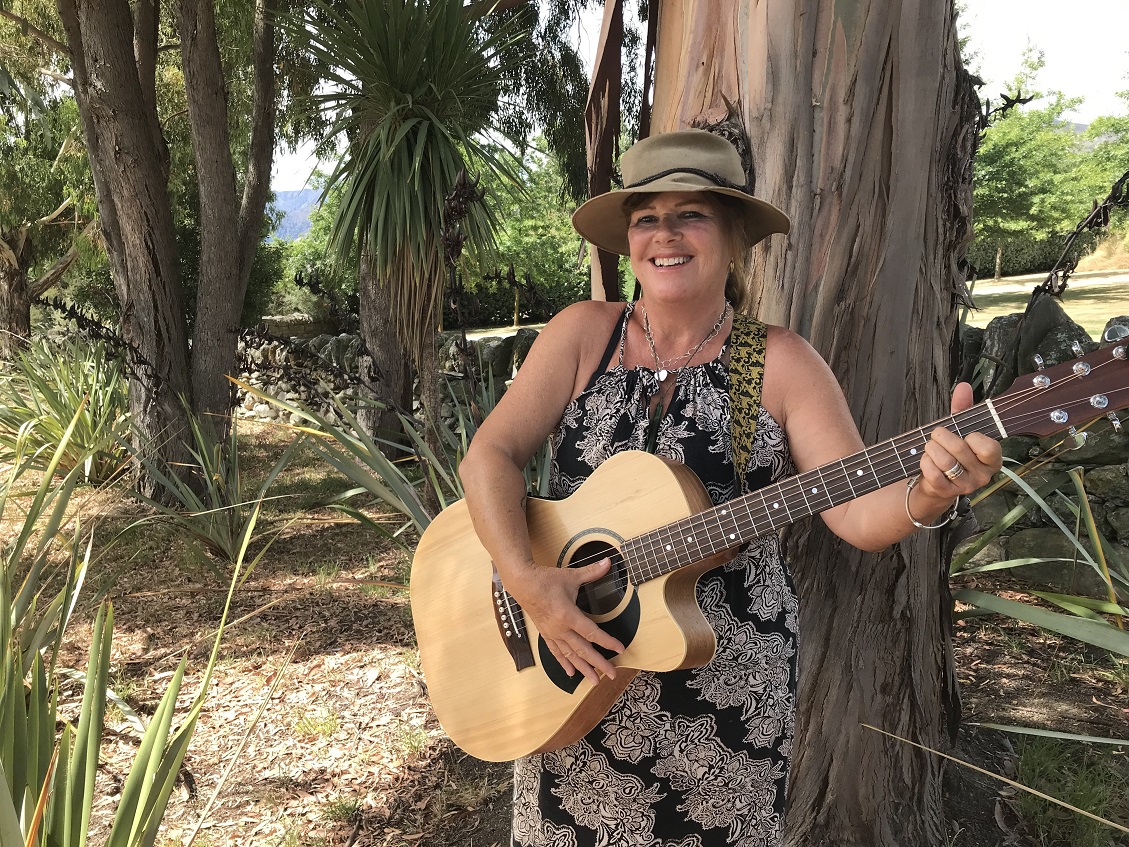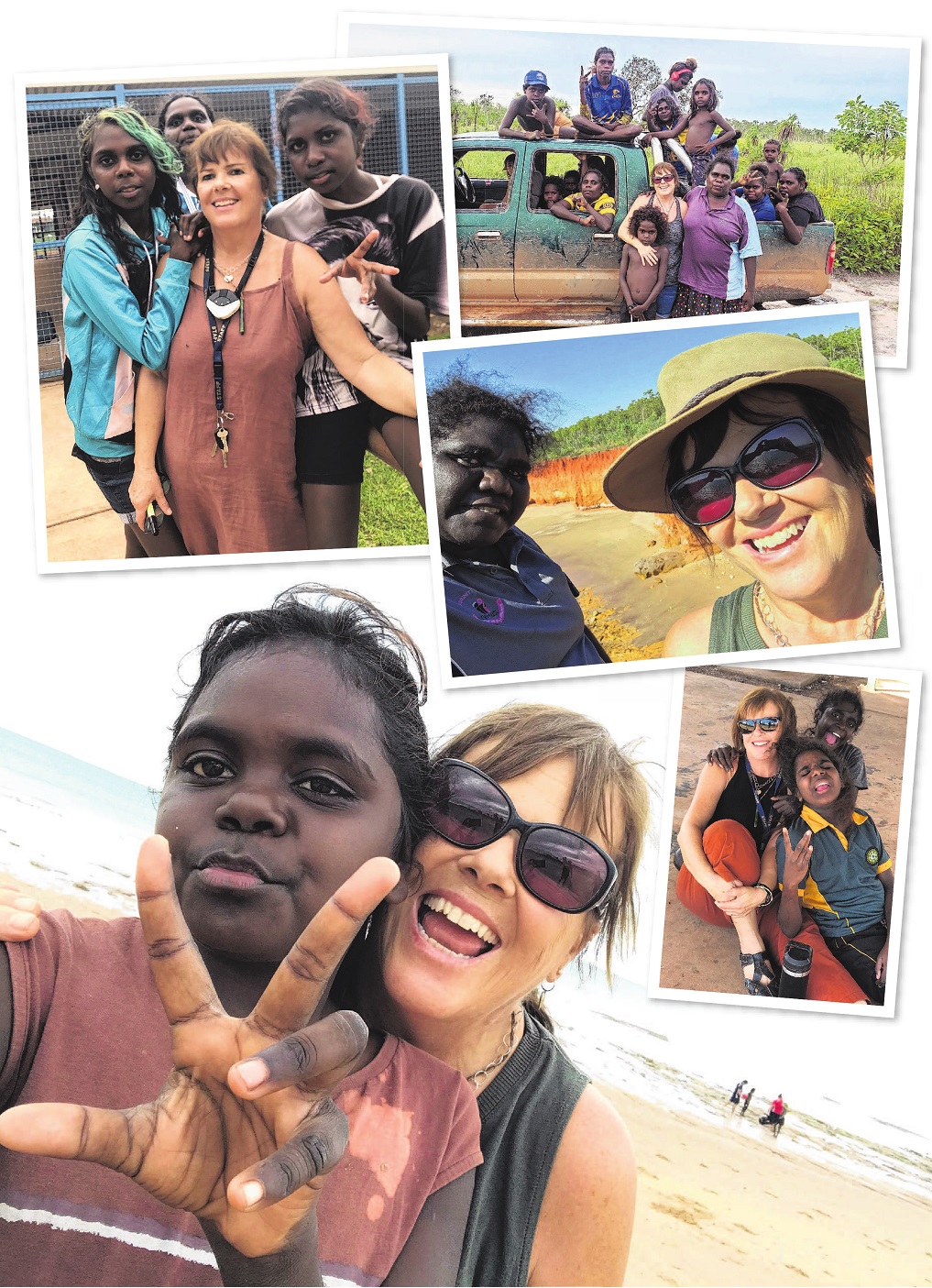

She was wrong.
"I thought I had a good training ground. But this was a whole next level."
But it took travelling to Wadaye, a remote indigenous community in Australia’s Northern Territory, 400km southeast of Darwin, to teach to show her and husband Rick.
There they lived between two cultures and for the first time experienced being the cultural minority.
"It challenged us, forced us to reassess any assumptions we might have had and look at life differently."
The community of 3000, mainly indigenous Australians, struggled with dysfunction and people feeling disenfranchised.
"It’s a highly volatile, traumatic environment a lot of the time."
But on the flip side, she and her husband found it an "incredible cultural privilege" to experience life there.
They made good friends and became part of a local family who took them "bush camping", where they got to learn a lot about Aboriginal indigenous culture.
So much so, that the one-year visit turned into four.
"We made some strong relationships."
Even Covid failed to shake them. When the pandemic first hit there was huge concern it might wipe out the community, so a biosecurity zone was established around the community, which meant for six months no-one could leave it.
"None of us wanted to be the person who brought it in. They kept it out for a year and by that time people were vaccinated so it didn’t affect us much, but it was very scary at first. We were prepared to do whatever it took."
Shaw, who learnt of Wadeye from a teaching colleague in Wellington, spent her days teaching years 9-10. While hired to teach music and drama, she ended up teaching all subjects for the first couple of years. While she was teaching the "academic kids" it did not mean they could read and write in English, as it was a bilingual school.
"I had to learn a whole other way of teaching. The things I relied on in the past didn’t work. It was a huge learning curve. I had to become very flexible and adaptable."
The pupils often came to school with little sleep or were sick or hungry. They were fed three meals a day at school.
"You never knew what to expect. You had to be very sensitive to reading the room and what was needed at any given moment."
She eventually got the chance to set up a music programme and do what she loved. It meant during Covid they were able to do a variety of musical projects, including recording a song with the help of her son, a musician who came to stay in the community during lockdown.
"It was the silver lining. I never imagined all of that could happen. It was really good."
Shaw became determined to ensure the children she taught could learn the ways of the "white fella" world as well as the "black fella" ways as they would need both to stand up for themselves in the outside world.
"Language gives them the power. I taught them their history, which could be confronting."

"It was a massive achievement. It took a lot of drive and pushing. It was a high point for sure."
The Shaws, whose home is in Wānaka, returned two years ago. They had been away from "home" for nine years, having spent four years in Wellington before they went to Australia.
"We needed time out to recalibrate and see where to next."
As they adjusted to life back in New Zealand, where the sweat did not drip off you 24 hours a day, Shaw began to reflect on her time in Wadeye.
While in the indigenous community she had written about her experiences and began to develop a one-woman show based on those musings.
Initially, she planned to tell the story at the festival two years ago but missing a spot in MIQ on her return from a visit to Australia meant she had to cancel.
It gave her time to develop the work, further adding music.
"I used a lot of music, played guitar and sang so I thought I’d tell the story through song and visual images as well."
Now a teacher at Mount Aspiring College, she is also involved in two other Festival of Colour productions, Elephant Talk and Songcatcher.
Being able to put her experience under the microscope through this process had been a great thing, she says.
"At times it can be painful and harrowing but I use humour a lot. Humour is a great vehicle to deal with all sorts of things that might not be said so easily otherwise."
Shaw is more than ready to step on to the stage and perform the work knowing that her Wadeye family is right behind her — she even got a phone call from her "sister" when she was rehearsing the other day.
"Once you have an experience like that it is very hard to say goodbye forever."
They plan to travel back to Wadeye later this year after a trip to Europe to visit their children.
Shaw would like to turn her writings into a book and do a documentary on the local women.
"We’d like to go back to the Top End and do some work for another six months or so. The whole experience is something we cherish and don’t want to let go."
TO SEE:
Remote Thoughts, Wānaka Festival of Colour, Hawea Flat Hall, March 27-28.












